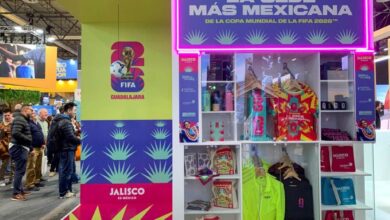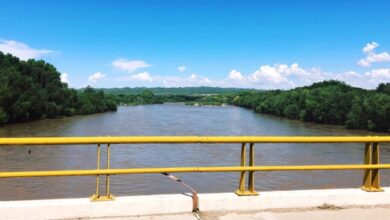Why Was AMLO Never the Latin American Leader Many Expected?
The Mexican president is approaching his last year in office with a solid internal position. However, at the regional level, AMLO did not achieve the impact that he initially seemed to project .

Photo: TW-lopezobrador_
LatinAmerican Post | Luis Angel Hernández Liborio
Listen to this article
Leer en español: ¿Por qué AMLO nunca fue el líder latinoamericano que muchos esperaban?
With the deaths of Hugo Chávez, Néstor Kirchner, Fidel Castro and the imprisonment of Lula da Silva, the left seemed to be fading away in Latin America. Right-wing governments returned to their posts throughout the region, but in 2018 Mexico rang the bell for the left and placed López Obrador in power. With no clear leadership in Latin America, it seemed that the ruler of MORENA could take the role. The relevance of the Mexican economy and its dialogue with the United States gave it the tools to, at least, aspire to be.
Mexico's Diplomatic Tradition
The Estrada Doctrine gave context to Mexican diplomacy since the 1930s. This establishes that Mexico does not recognize or ignore any government, as part of a policy of non-intervention and considering it a negative practice. Over time, it was expanded, but the central motif has persisted. AMLO has always been a pragmatic politician. When López Obrador came to power, he assured that he would return to this classic diplomatic tradition of the country. However, its use has been ambiguous. On the one hand, when it has suited their interests, they have faithfully followed it, avoiding making any statement about Venezuela, Cuba or Nicaragua, arguing that it would be meddling in their internal affairs.
But, on the other hand, he has not hesitated to express his opinion on what he considered coups d'état in Bolivia and Peru, when they removed Evo Morales and Pedro Castillo, respectively. He even went further, AMLO sent a plane to Bolivia with the mission of “rescuing” the former president and in Peru he offered Castillo asylum in the Mexican embassy, but he was arrested before. In both cases, the countries involved considered the events as an interference by the Mexican president. AMLO has also advocated for Argentina, for Lula in Brazil and for Cuba, even though it has caused him some friction with the OAS and the United States in the Biden era.
Finally, AMLO is a “domestic” president, he has no interest in international affairs, unless they involve his allies in the region. He has avoided attending major international events and forums such as the Davos Forum, OAS meetings, the Pacific Alliance, etc. In his place, he has sent one of the next presidential candidates, Foreign Minister Marcelo Ebrard. Unlike Chávez or Lula, AMLO does not seek large regional alliances, trade agreements or push a leftist agenda to all corners, his main objective has been to consolidate his version of the left in his country.
You can also read:Land Reform in Brazil: Can Lula Fulfill the Historical Debt?
The Latin American Left is More Cautious
The charisma of Lula and Hugo Chávez in the “first wave” of the left, their great projects and ideas led to the strengthening of Mercosur, ALBA and in general a notion of regional unity to face the United States. Large meetings of all the leftist leaders were held during this time, in which Mexico and Colombia were not present. For their part, these countries created the Pacific Alliance together with Chile and Peru. The decline of this left produced a negative image that impacted progressive governments throughout the region, regardless of whether they had affinities with Chavismo.
Now that there is a new wave of the left, the rulers have avoided showing affinity with the Chavista left, with Nicaragua and even with Cuba. AMLO has been cautious, but helping Evo Morales and Pedro Castillo, or receiving Díaz-Canel and Nicolás Maduro, has cost him internally. The opposition right has not let it go by. Putting effort into an eventual regional leadership would have a high electoral cost that López Obrador is not willing to pay, enough he had with the hiring of Cuban doctors during the pandemic in a country with a deficit of health professionals, with low salaries and few jobs.
López Obrador's greatest international moment was during the Trump era. Despite their ideological differences, they achieved a close relationship that turned out to be contrary to what would have been thought. When it looked like it was going to be a head-on clash a la Bush and Chávez, it ultimately turned into a tense friendship. Being the second-largest economy in the region and maintaining a good relationship with its neighbor to the north is vital to AMLO's national aspirations. His large projects depend on resources from remittances, tourism, trade with the United States and Canada, and of course foreign investment. Being a leader of the regional left is not entirely compatible with a good relationship with the United States, it would somehow put an obstacle to their projects.
His most radical moment in foreign policy towards Latin America happened just a few days ago when, due to his support for Pedro Castillo, he declared that he would not hand over the pro tempore presidency of the Pacific Alliance to Dina Boluarte, president of Peru. The president responded energetically, pointing out interference in the internal affairs of her country. In response, both countries are on the verge of breaking off diplomatic relations, although the situation has toned down. As an alternative, López Obrador proposed handing over the presidency to Chile, but President Boric refused. Like the Chilean president, Gustavo Petro has avoided radical statements and international friction. Then, the outcome of this diplomatic problem between Mexico and Peru is still missing when the Mexican presidency in the alliance ends. AMLO is thus far from a regional leadership that he has not sought, but that was expected of him.





